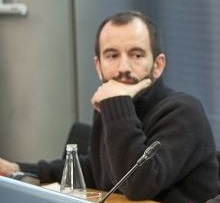" Now the challenge is to use the findings to foster change"

An interview with Davide Malmusi, Project Manager
1) How is it to manage such a big and complex project?
I think it has been a challenging but exciting work. Being project manager and at the same time a researcher collaborating in most work packages has been stressful, but certainly an advantage to monitor the project progress from inside and to explain it in reports to the funding agency. It was my first experience, and also the first coordination of a Framework Programme project for my organisation. Probably at the beginning our partners "suffered" an excess of requests of information and reporting that I wouldn't ask again now.
2) Has it been difficult to tackle with such a disparity of disciplines, approaches and partners? orientations?
Collaborative projects like SOPHIE put together a dozen of teams from different countries and with different research trajectories. When you have epidemiologists, sociologists, economists, geographers, architects, psychologists, social workers... researchers more oriented to material and structural causes, and other to behavioural... you must "relax" and accept that all approaches are valid, and all contribute in one way or another to the common objectives.
3) Have the goals generally speaking been accomplished?
Yes, I think that all the main objectives were accomplished. Participation of stakeholders, and especially vulnerable populations, throughout the research process, has been the most difficult to reach and one that we could achieve satisfactorily only in selected studies. This is an objective that can't be the objective of a single project, but one that each research group and each researcher needs to commit seriously through the years, in order to build valuable relationships and trust with relevant stakeholders in the geographical area and research subject.
4) Will there be a SOPHIE 2?
In 2011, the FP7 call for Health projects included a specific topic on "developing methodologies to reduce inequities in the social determinants of health". It was an exceptional opportunity to develop large projects on structural policies and health inequalities, like SOPHIE, but also DEMETRIQ, DRIVERS and SILNE. Unfortunately,subsequent calls, including the first calls of H2020, have neglectedthe social and political determinants of health and we didn't succeed in setting up a new big project with a similar focus.
However, many SOPHIE researchers have obtained funding for new specific projects where they are deepening into issues where we advanced a lot in SOPHIE, like the health consequences of fuel poverty or precarious employment. And most importantly, SOPHIE 2 should be about fully developing the potential of our findings for "fostering change", as the title of the project mentioned. In Barcelona, some SOPHIE researchers took over the responsibility of health policies in the new municipal government: this is a great opportunity to boost policies across the whole government with the highest potential to reduce health inequalities, as showed in SOPHIE.
